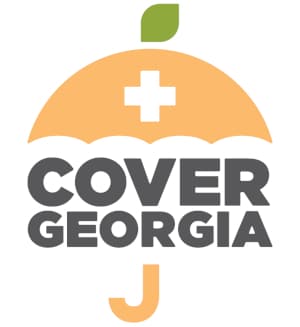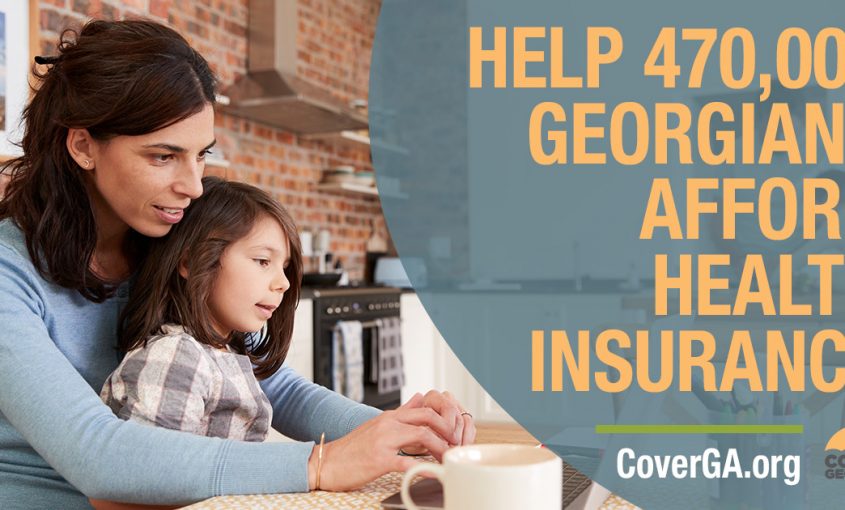You can help spread the word about Medicaid expansion on social media and through your networks! Leverage the resources below, tag social media posts with #coverga and link to https://coverga.wpengine.com to help your network take action.
For example:
Now is the time for Georgia lawmakers to support struggling rural hospitals, address the opioid crisis and provide health care access to 470,000 Georgians by expanding Medicaid. #coverga https://coverga.wpengine.com
We can’t afford to wait
State lawmakers can help 470,000 Georgians access affordable health care by expanding Medicaid.
Now is the time for Georgia lawmakers to support struggling rural hospitals, address the opioid crisis and provide health care access to 470,000 Georgians by expanding Medicaid eligibility.
Georgia has refused more than $12 billion federal dollars meant to put health insurance cards in the pockets of Georgia families. We can’t afford to keep waiting to expand health coverage.
Georgia is turning down $8 million a day —$3 billion per year—in money we could be using to help hardworking Georgians access health care.
Georgians can’t afford another year of turning down billions of federal dollars that could be coming back to the state to stabilize struggling hospitals, create thousands jobs and provide health coverage to working Georgians.
As taxpayers, Georgians have already invested in boosting access to health care. If we don’t accept this opportunity in Georgia, the federal government simply keeps our tax dollars.
Basic details
About 240,000 Georgians make too little to get financial help to buy health insurance and don’t currently qualify for Medicaid. These Georgians are stuck in the coverage gap with no affordable insurance options. Why? State leaders keep turning down money meant for health coverage.
Many people in the coverage gap work low-wage jobs where they’re not offered health benefits.
The majority of people who would be covered by expanding Medicaid are working. Many of these workers are in some of Georgia’s most important economic sectors: construction, transportation, education and retail.
Strengthen rural communities
Expanding health coverage would support Georgia’s rural hospitals, economic anchor institutions for rural communities across the state.
Closing the coverage gap would create at least 12,000 new jobs and $1.3 billion in new activity in Georgia’s rural communities each year.
Support behavioral Health
About 25% of uninsured Georgians who would qualify for Medicaid expansion coverage suffer from mental illness or substance abuse.
States that expanded Medicaid connected treatment services to more people with mental illness or substance abuse disorder.
Help women access care
Closing Georgia’s coverage gap would extend health insurance to more than 155,000 uninsured women in Georgia.
Georgia ranks among the bottom five states for women’s health insurance coverage.
Financial security
Just one medical bill can send you into bankruptcy when you’re uninsured. Hardworking families in Georgia need health coverage to get care when they need it without facing huge medical bills or going into bankruptcy.
Accountability
Georgia has refused $12 billion federal dollars meant to put health insurance cards in the pockets of Georgia families. Contact your reps and ask them: why? https://coverga.wpengine.com
Six Georgia rural hospitals have closed since 2013 and many more are struggling. But Speaker David Ralston “isn’t in the mood” to expand health coverage and stabilize rural communities. https://coverga.wpengine.com
Instead of expanding health coverage, Lt. Gov. Cagle spent a year studying the state’s biggest health care problems. His solution? More research. How long do we have to wait? https://coverga.wpengine.com

